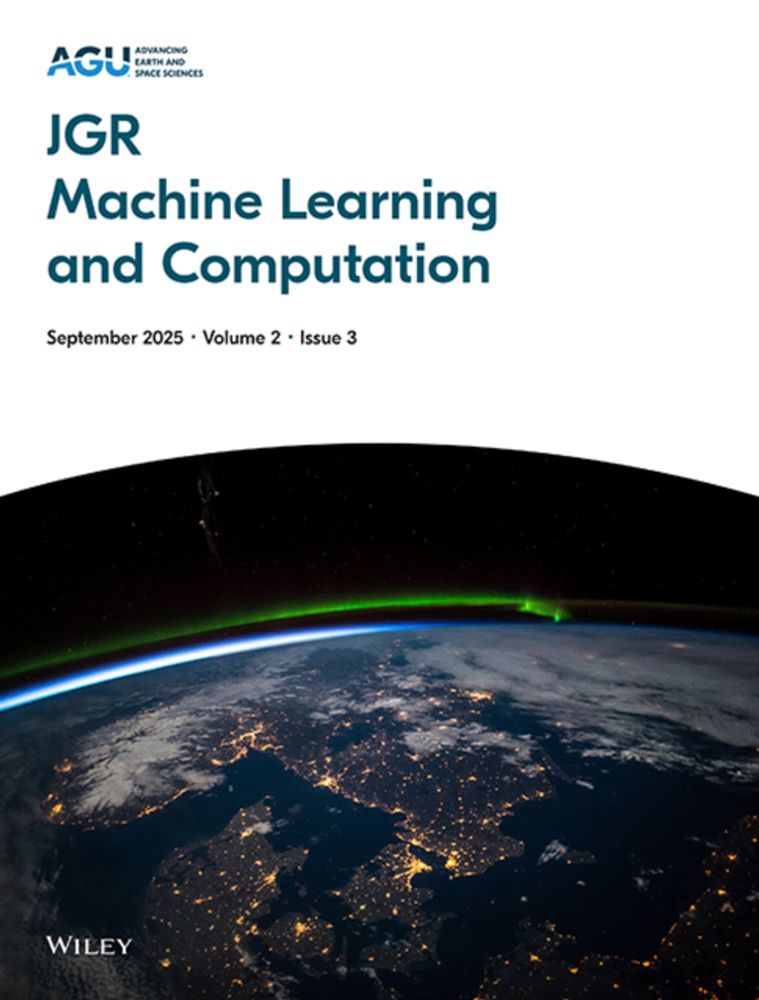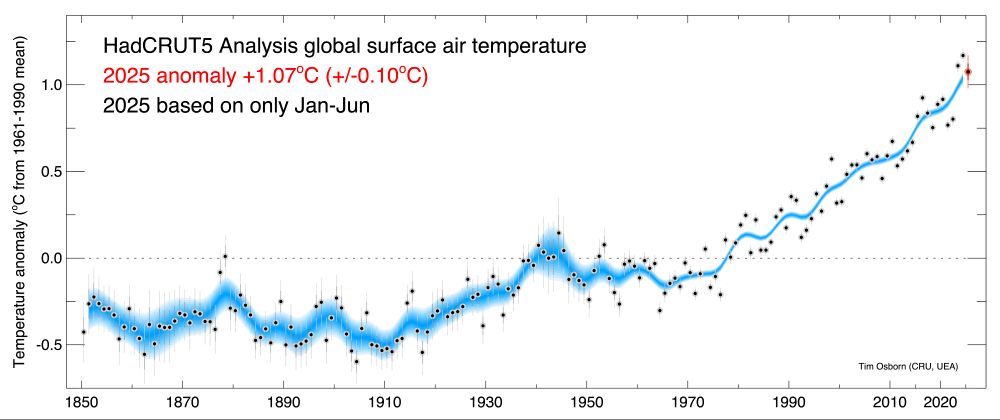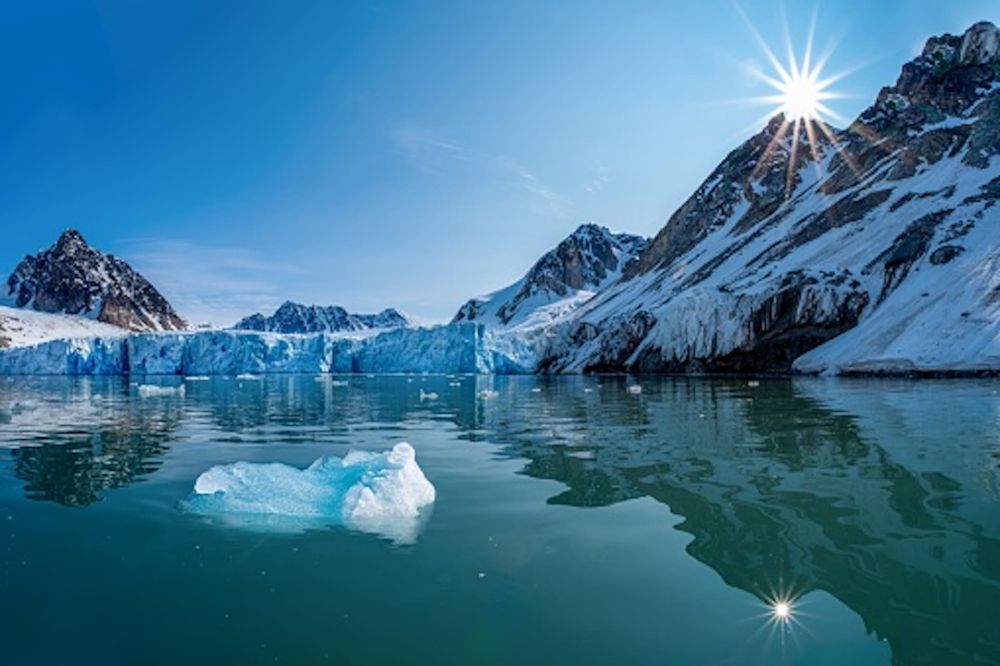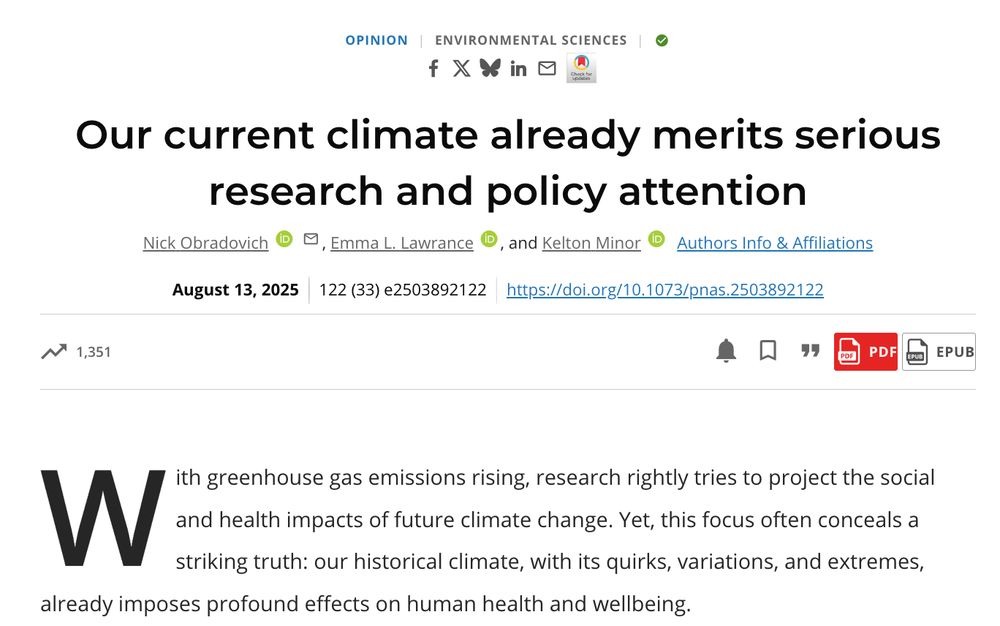Fingers crossed you don’t have to have any such discussion.
Reposted by: Flavio Lehner

Reposted by: Flavio Lehner
Watch as #Imelda’s growing outflow and sinking air impinges on #Humberto’s core, likely soon leading to weakening. Systems are now under 600 miles apart.
Intl Jet fuel tax exemptions are 80 years old and cost the EU 22 million EUR/yr for the Paris-Berlin route alone.
And you're cutting... the sleeper?
www.theguardian.com/travel/2025/...

Reposted by: Flavio Lehner, Anna O. Law, Marc Lynch , and 19 more Flavio Lehner, Anna O. Law, Marc Lynch, Brendan Nyhan, Michael A. Clemens, Laia Balcells, Jacob Montgomery, John Mullahy, Anthony C. Robinson, Gerry Canavan, Trevon D. Logan, Melanie C. Green, Rebecca Tushnet, Samantha Brennan, Jason Lyall, Lisa Diedrich, Brian Weatherson, Raúl Pacheco-Vega, Kate Jackson, Prakash Kashwan, Karin Wulf, Stuart Shapiro
Reposted by: Flavio Lehner, Joshua S. Weitz, Silvia Secchi , and 1 more Flavio Lehner, Joshua S. Weitz, Silvia Secchi, Jason Williams
We created a petition to NSF leadership and Congress to reverse the changes - please sign and share your stories here!!
laurenkuehne.github.io/grfpChanges/
Reposted by: Flavio Lehner
1/
agupubs.onlinelibrary.wiley.com/doi/full/10....

Reposted by: Flavio Lehner, A. E. Dessler, Gavin A. Schmidt
This special collection will publish U.S.-focused climate assessment science that’s free to read, ensuring rigorous, accessible science informs decisions for years to come.
🔗 buff.ly/1tHUSLC

by James Goodwin — Reposted by: Flavio Lehner, Gavin A. Schmidt, James Goodwin

They took it down, but we've brought it back at: nca5.climate.us
Bookmark. 👏 this. 👏 page. 👏
This is just our first step in restoring trusted science information that Americans need to understand what's happening with the climate.
Back in 2019 I led a research effort to digitize old climate model projections and assess how well they did. Turns out they got future warming pretty spot on!

Reposted by: Flavio Lehner, John Kennedy, Peter Thorne , and 3 more Flavio Lehner, John Kennedy, Peter Thorne, John K. Pinnegar, Du Toit, Ed Hawkins

Reposted by: Flavio Lehner
Reposted by: Flavio Lehner, A. E. Dessler, Kevin J. Anchukaitis
The data used in Sherwood et al is now almost a decade old (not to mention Lewis and Curry 2014).
Even ignoring pattern effects, we’re now already at ~1.5C with less than 2xCO2 and an even larger energy imbalance.
No way Effective ECS is <2.
Reposted by: Flavio Lehner

The full data is available via MMLEA or ESGF but that's a pain if you just need global mean.
www.cesm.ucar.edu/community-pr...
aims2.llnl.gov/search/cmip6/
@lukasgudmundsson.bsky.social @yasserhaddad.bsky.social @yannquilcaille.bsky.social @michaelgwindisch.bsky.social @usyseth.bsky.social
Reposted by: Flavio Lehner, Brigitte Nerlich, Richard Betts
@gchalliance.bsky.social
@docsforclimate.bsky.social
@fossilfueltreaty.bsky.social

However, the opposite seems to be true!

- This work is not novel but I can't provide literature to back up my verdict.
- While you have now included all the datasets that I asked you to, you are still not considering enough datasets.
- Do this analysis that you already did (in the supplement).
Reposted by: Flavio Lehner

by A. E. Dessler — Reposted by: Flavio Lehner, Katharine Hayhoe, Valerie M. Delmotte , and 14 more Flavio Lehner, Katharine Hayhoe, Valerie M. Delmotte, John Kennedy, Peter Thorne, Ankur R. Desai, Ben Bond‐Lamberty, Du Toit, Wim Thiery, Gavin A. Schmidt, Jesse H. Kroll, Robbie M. Andrew, Patrick A. Jansen, John Cook, Nathan Richardson, Hisham Zerriffi, A. E. Dessler
Our conclusion: The merchants of doubt are back, and they're coming for climate science.
by Jakob Zscheischler — Reposted by: Flavio Lehner, Rohini Kumar
by A. E. Dessler — Reposted by: Flavio Lehner, Katharine Hayhoe, Paul Dorfman , and 16 more Flavio Lehner, Katharine Hayhoe, Paul Dorfman, Sonia I. Seneviratne, Kristie L. Ebi, John Kennedy, Peter Thorne, Ben Bond‐Lamberty, Gavin A. Schmidt, Jesse H. Kroll, Julie L. Lockwood, Rosie A. Fisher, Elena Litchman, Michael J. Allen, Gernot Wagner, Alan Richardson, Jonathan J. Buonocore, Hisham Zerriffi, A. E. Dessler
This is related to Brandolini's law: The amount of energy needed to refute bullshit is an order of magnitude bigger than that needed to produce it.
Example: refuting one sentence.

by Kevin J. Anchukaitis — Reposted by: Flavio Lehner



